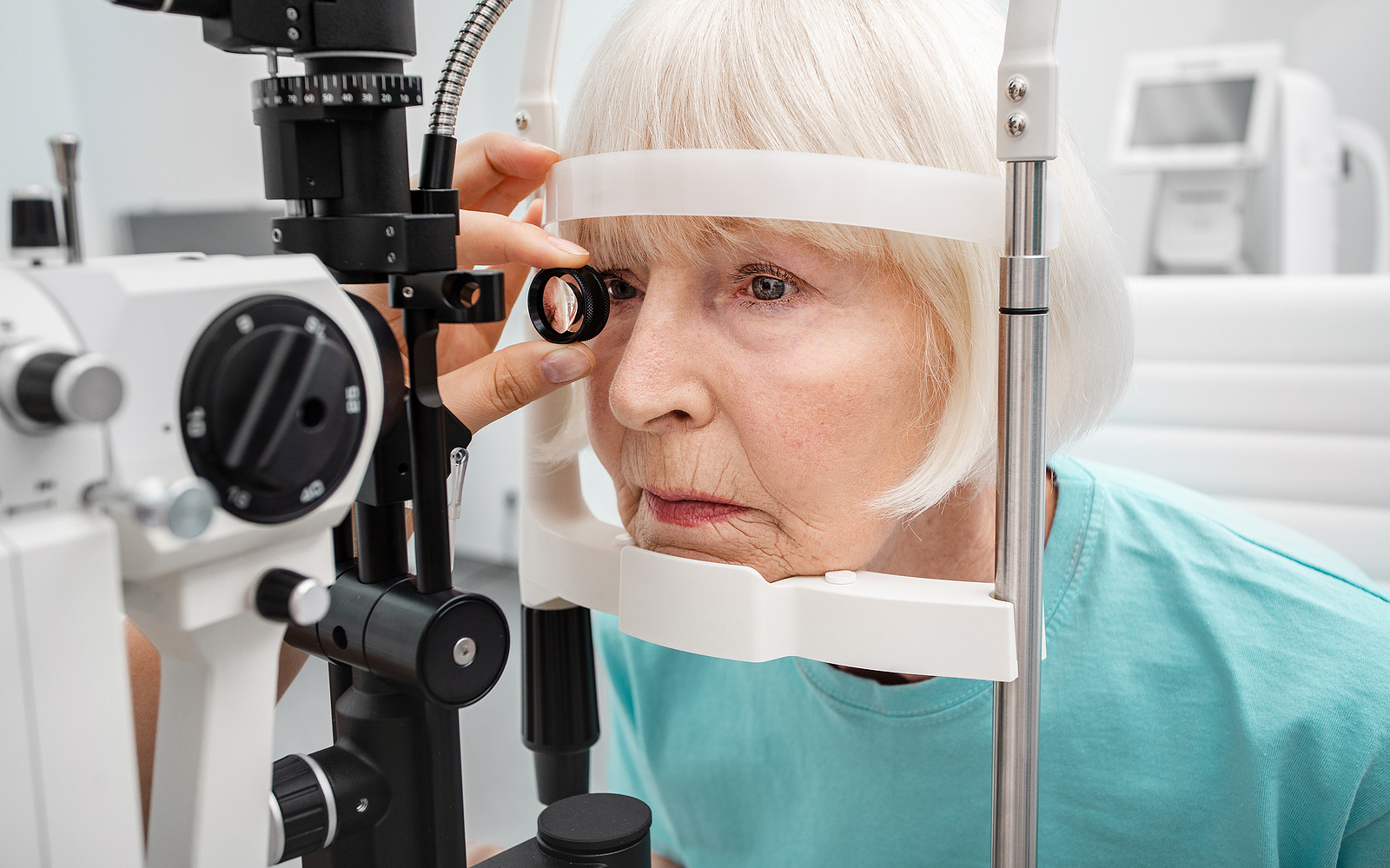How Does the Weather Affect Your Eye Health?

Learn how different weather conditions — from sunlight to storm clouds — can impact your eye health.
Spending time outside can be great for your physical and mental health, but it’s also important to shield your eyes from the elements. In fact, a variety of weather conditions have the potential to damage your vision.
So how can you protect your eyes? In this article, we’ll take a look at how the weather can impact your vision — and what you can do to stay safe.
Sunny Skies
Sunlight is made up of both electromagnetic and subatomic radiation, the most dangerous of which is ultraviolet (UV) radiation. There are two common types of UV rays: UV-A and UV-B. UV-A has the potential to damage your central vision and degenerate the macula — the part of the retina at the back of your eye. UV-B, on the other hand, is more likely to harm the front of your eye, where the lens and cornea are. UV-B rays can be very damaging, and have the potential to cause macular degeneration, corneal sunburn, and cataracts.
UV rays are a common concern in the summertime, but exposure to UV radiation can also occur during the winter. Sun reflecting off of the snow may result in an acute pain known as “snow blindness.” No matter the season, it’s always important to be careful about your eye health when it’s sunny out.
Fortunately, there are many precautions you can take to protect your eyes from UV damage. For one, you can wear protective sunglasses, goggles, or hats to shield against direct sunlight when you’re outside. You should also apply sunscreen to your face — being careful not to get any in your eyes — to limit potential irritation from sunburn.
Dry Air
Dry weather can also be damaging to your eyes. This is particularly true in cold climates, where heavy winds and dry air can cause severe discomfort.
In dry weather, your eyes often lose moisture, which means it’s more difficult to keep them lubricated and wash out irritants. This can lead to your eyes becoming itchy, uncomfortable, and susceptible to damage or infections.
Dry weather is especially difficult for people who wear contact lenses or have chronically dry eyes. Luckily, patients can mitigate complications with a few simple steps. For one, you should hydrate your eyes using lubricating eye drops periodically throughout the day. You can also keep your body hydrated by drinking a lot of fluids, which will help keep the moisture in your eyes.
Stormy Weather
During a storm, dust particles from the ground are kicked up and can easily enter your eyes. This may cause you to develop an allergic reaction or result in a scratched cornea. Further, the wind that accompanies a storm has the potential to dry out your eyes and expose them to some of the aforementioned conditions.
In order to avoid storm-related eye damage, it’s best to stay inside during bad weather. If you do go outside, be sure to wear protective eye wear like goggles or shades to keep your eyes safe from debris.
Take Control of Your Eye Health
The good news is that weather-related eye conditions can often be prevented by following some of the best practices outlined above. However, if you do find your eyes becoming severely irritated, or are worried that you might be experiencing other vision problems, schedule an appointment with one of the experienced doctors at our Mesa and Chandler locations. Our eye care professionals can help you maintain clear vision through rain or shine.
[DISPLAY_ULTIMATE_SOCIAL_ICONS]








